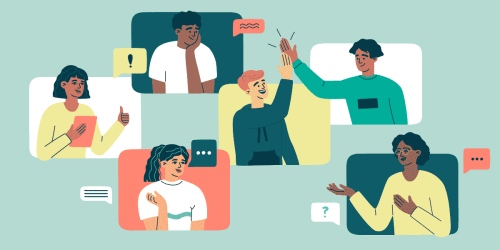Young people learn and grow in spaces where they feel seen, connected, and heard. We cultivate these environments by building relationships, sharing decision making, and working side by side with young people. Our experienced researchers and practitioners can help you design and evaluate programs, systems, and policies that engage and support youth in schools or community-based programs, like after-school or mentoring. We translate the latest research on adolescent development into practical strategies that take a whole-person approach, build on youth strengths, and uplift youth voice. Together, we can create engaging, empowering, and meaningful opportunities for young people to thrive.
Specialties
- Training and professional development on asset-based and responsive practices to build positive relationships with and among youth
- Co-design of logic models and theories of change for programs and systems
- Evaluation of school or community-based programs, including youth participatory methods
- Development and evaluation of policy and systems initiatives related to out-of-school time, school climate, safety and discipline, youth reengagement, and alternative learning environments
Our Experts
-

Managing Researcher
-

Senior Researcher
-

Senior Researcher
-

Researcher
-

Managing Researcher
Building a clear path toward better education for all, together
PARTNER WITH USYouth Engagement Insights & Resources
Researcher Grace Gowdy explores how informal mentoring relationships offer important lessons about promoting equity and youth voice.
This guide outlines asset-based, culturally and linguistically responsive practices for engaging young immigrants and connecting them to education and career resources.
In the United States today, more than four million young adults have disengaged from the K–12 education system without graduating or entering the workforce.
The following resources for planning, designing, and implementing a youth mentoring program were developed by our National Mentoring Center project.
It’s past time that adults take action to promote youth voice. Here are some ways to get started.









